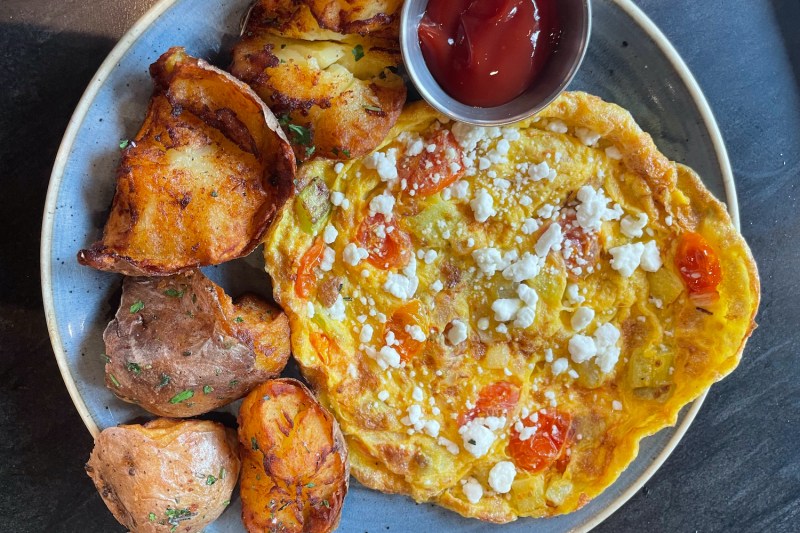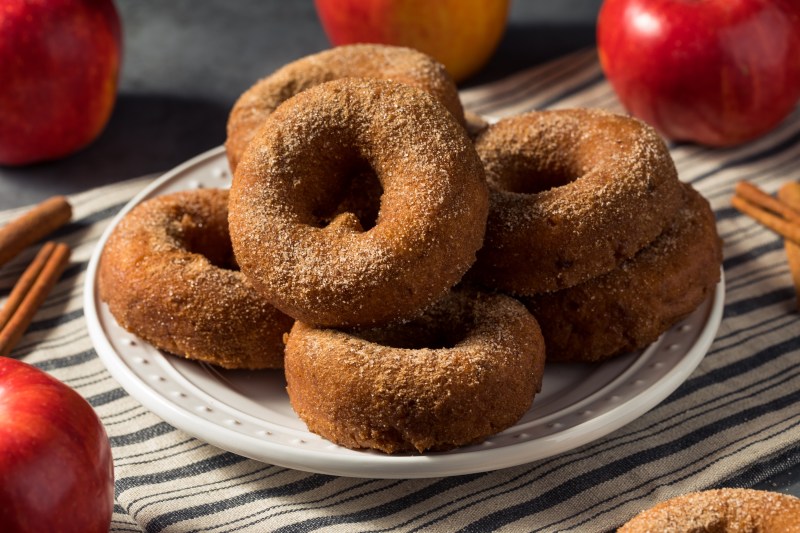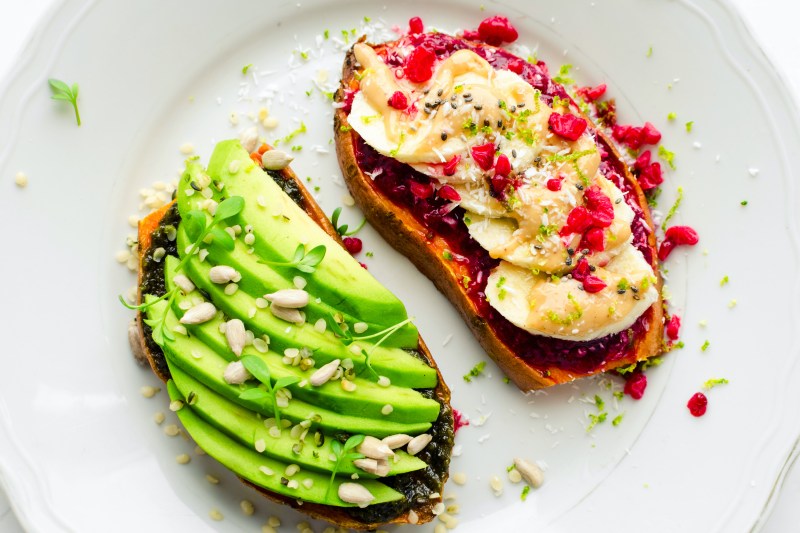They say breakfast is the most important meal of the day for a reason! As a nutritionist, I am always encouraging my clients to start their day off right with a nutritious meal that is high in protein and fiber to keep them feeling full and energized for hours to come.
But what are the best foods for breakfast? Whether you have specific health goals you are looking to support or you simply want your first meal in the morning to be good for you, knowing the optimal foods is essential. Keep reading to discover ten foods that we recommend!
Is there such a thing as a perfect breakfast?

There’s no universally perfect breakfast, but the ideal meal depends on your specific needs and goals. A perfect breakfast is balanced, including protein (eggs or Greek yogurt), healthy fats (avocado or nuts), and complex carbs (whole grains or fruit) to fuel energy, sustain fullness, and stabilize blood sugar. It should also include hydration, such as water or tea, to rehydrate after sleep. Coconut water and Himalayan salt are great sources of electrolytes as well.
Beyond the food itself, timing is key — eating within an hour of waking kickstarts metabolism. Personal preferences and dietary needs matter, too, as the best breakfast is one you enjoy and can maintain consistently while supporting your overall health and lifestyle goals.
What are the benefits of having a balanced breakfast?

Boosts energy levels
A balanced breakfast is essential after an overnight fast, as it provides your body with essential nutrients and energy. Eating protein, healthy fats, and complex carbs fuels your brain and muscles, helping you feel energized and focused throughout the morning. This boost also supports better productivity and physical performance.
Stabilizes blood sugar levels
Including a combination of protein and fiber in your breakfast can prevent blood sugar spikes and crashes. This helps you maintain steady energy levels and have reduced cravings later in the day, supporting better dietary choices and overall well-being. Balanced blood sugar levels also improve mood and concentration.
Promotes long-term health
Regularly eating a nutritious breakfast contributes to maintaining a healthy weight, reducing the risk of chronic conditions like diabetes and heart disease. In fact, one study found that “habitually skipping breakfast is associated with elevated concentrations of [inflammatory markers].”
A breakfast rich in whole, nutrient-dense foods provides essential vitamins and minerals, supporting immune function, bone health, and overall body systems for long-term wellness.
Adjusting your breakfast based on your health goals

Adjusting your breakfast to align with your health goals is key to success. For building muscle, focus on high-protein options like eggs, Greek yogurt, or protein smoothies to support muscle growth and repair. It can also be helpful to pair your protein source with healthy fats and complex carbs for sustained energy.
If you are on a weight loss journey, prioritize low-calorie, nutrient-dense foods. Include optimal protein sources like egg whites or lean turkey to promote fullness and fiber-rich options like vegetables, berries, or oatmeal to reduce cravings. Avoid sugary cereals or processed foods, and balance portions to maintain a calorie deficit while fueling your body for energy and focus.
10 nutritious foods to add to your breakfast

If you are looking to make your breakfasts nutrient-dense, the following are some great foods to consider including in your morning meal:
- Eggs: Eggs are a powerhouse of protein and nutrients like choline, which supports brain health. They’re versatile, easy to prepare, and keep you full.
- Greek yogurt: Rich in protein and probiotics, Greek yogurt supports digestion and muscle repair. Pair it with fruit or granola for a nutritious start.
- Oatmeal: Oatmeal is a fiber-rich whole grain that promotes heart health and provides long-lasting energy. Add cinnamon, berries, or nuts for extra nutrients.
- Avocado: Packed with healthy fats and vitamins, avocado is great for satiety and heart health. Spread it on toast or add it to eggs.
- Berries: Berries like blueberries, strawberries, and raspberries are loaded with antioxidants and fiber, and they’re perfect as a topping.
- Nut butter: Almond or peanut butter provides healthy fats, protein, and flavor. Spread it on toast or add a dollop to oatmeal.
- Spinach: Spinach is a nutrient-dense leafy green packed with iron, vitamins, and antioxidants. Toss it into an omelet or smoothie.
- Chia seeds: Rich in omega-3s and fiber, chia seeds are excellent for digestion. Add them to yogurt, oatmeal, or smoothies.
- Bananas: Bananas are a quick, energy-boosting fruit with potassium and natural sweetness.
- Whole-grain toast: This complex carb provides fiber and energy, making it a great base for spreads or toppings.
Foods to avoid having for breakfast

Certain foods should be avoided for breakfast due to their low nutritional value and negative impact on energy levels. These include the following:
- Sugary cereals are high in refined sugar and low in protein and fiber, leading to energy crashes.
- Pastries and donuts, while convenient and tempting, are loaded with sugar and unhealthy fats, offering little nutritional benefit.
- White bread and bagels lack fiber, causing blood sugar spikes and not satisfying your hunger.
- Flavored yogurts often contain added sugars, which outweigh their health benefits.
- Processed breakfast meats, like bacon or sausage, are high in saturated fats and sodium, potentially harming heart health.
- Fruit juices, despite seeming healthy, are typically packed with sugar and lack the fiber of whole fruit.
Overall, you want to opt for whole, nutrient-dense foods instead to fuel your body and maintain sustained energy.
Frequently asked questions

What is the very best food to eat for breakfast?
The best breakfast food depends on your goals, but a balanced option includes protein, healthy fats, and fiber. Eggs with avocado and whole-grain toast, Greek yogurt with berries and nuts, or oatmeal with peanut butter and chia seeds are great choices to fuel your body, boost energy, and sustain fullness.
What is the first thing you should eat in the morning?
The first thing to eat in the morning should provide hydration and energy. Start with water to rehydrate after sleep, then choose nutrient-dense foods that are rich in protein, fiber, and healthy fats to stabilize blood sugar, boost metabolism, and sustain energy throughout the day.
What is the healthiest breakfast habit?
The healthiest breakfast habit is eating a balanced meal within an hour of waking. Include protein, healthy fats, and fiber to stabilize blood sugar and sustain energy. Pair it with hydration, like water or herbal tea. Consistency in timing and nutritious choices sets a strong foundation for the day ahead.




